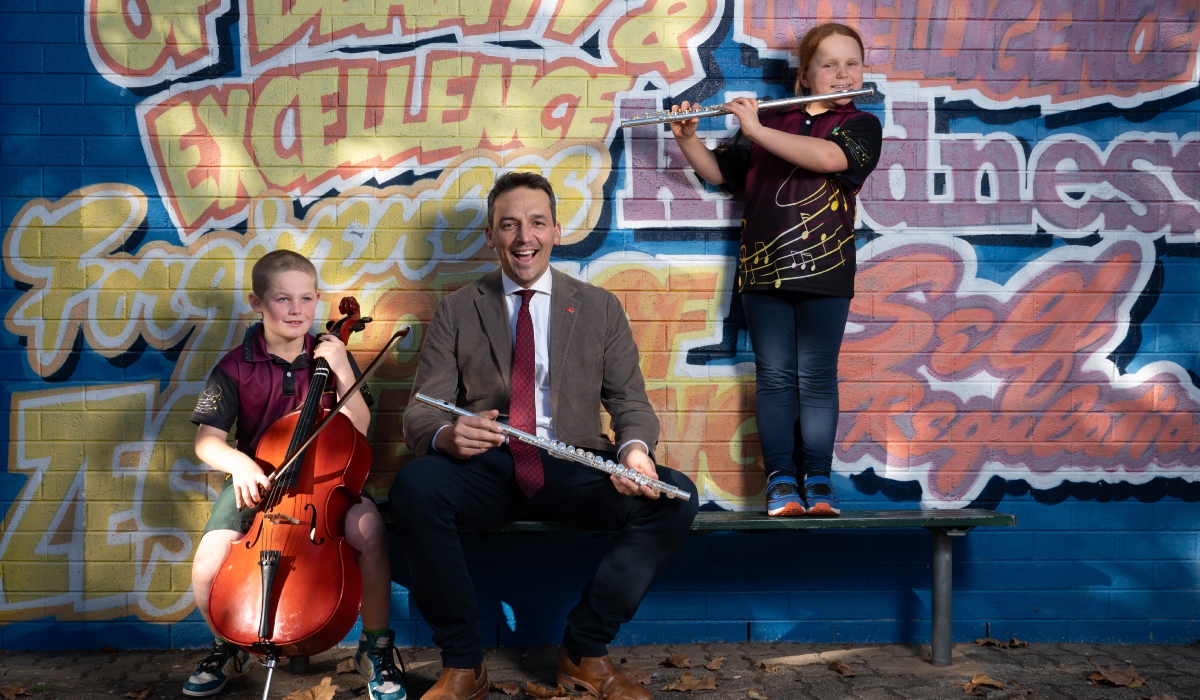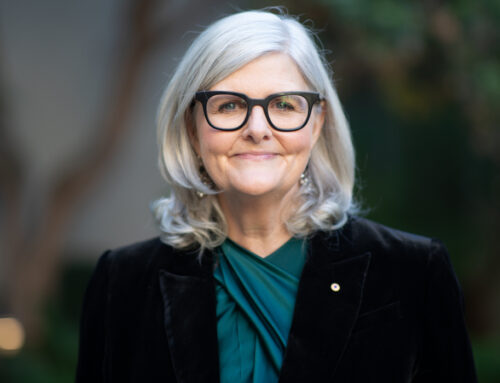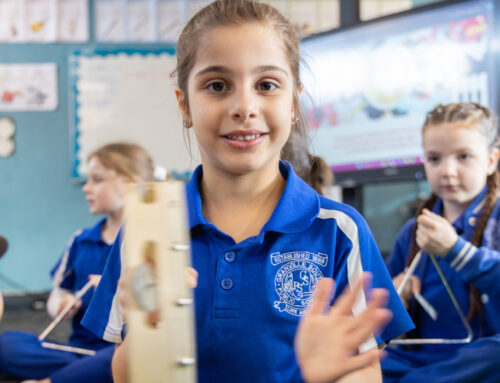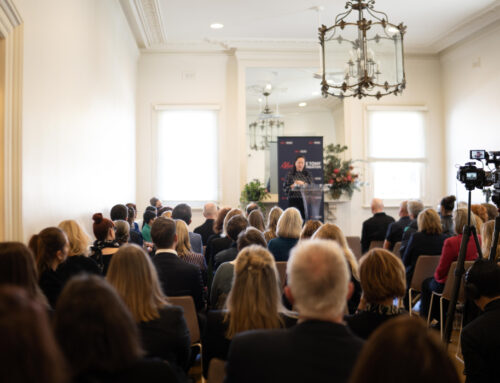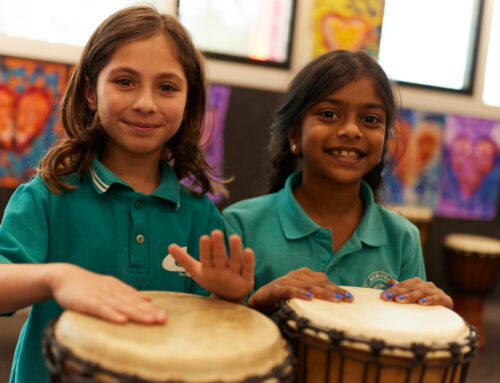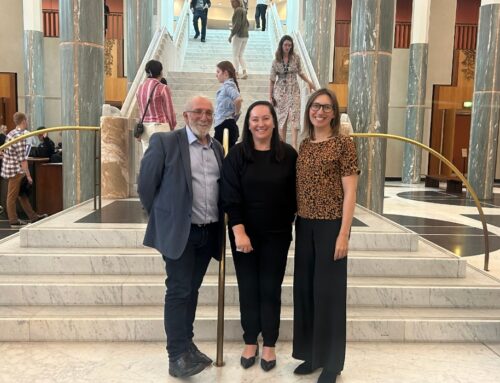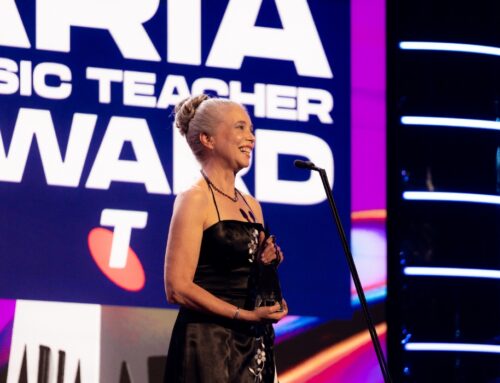South Australia’s Minister for Education, The Hon. Blair Boyer MP, delighted students with a visit to Adelaide’s The Pines School on 8 May to unveil new research from our Music Education: Right from the Start initiative, shedding light on the state of music education delivery in South Australia’s primary schools.
“I’m very, very proud to be here,” said Minister Boyer, sporting a wide smile as he engaged with students and posed for photos during his entrance to the exclusive launch event.
Joining the Minister to share insights from our SA primary teachers survey, conducted in partnership with SA’s Department for Education, were Emily Albert, Alberts Executive Director and head of Music Education: Right from the Start; Toula Girgolas, the school’s Acting Principal; Rachel Felgate of the Australian Council for Educational; and Geoff Day of The Day Family Foundation.
Esteemed guests from The Song Room, Musica Viva, Adelaide Youth Orchestra, Adelaide Festival Centre, and South Australia’s Music Education Strategy team were treated to a captivating taiko performance by the school’s music program students – a moment that resonated with Minister Boyer.
“It’s a fantastic investment,” he declared on stage, “and it’s not often actually seen as an investment – and it should be.
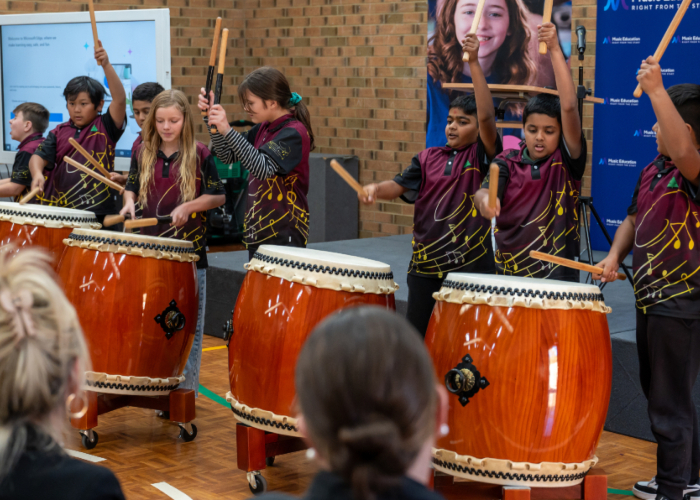
Guests were treated to a Taiko drums performance by The Pines School’s talented music students. (Image: Naomi Jellicoe).
The survey findings
The Minister’s sentiment echoed the key findings from our research, which stemmed from a broad-ranging survey of teachers and representatives from 115 South Australian government primary schools.
With South Australia four years into its 10-year Music Education Strategy, the state is the initial focus of this groundbreaking research endeavour, which establishes a comprehensive measurement framework aimed at understanding what, when, how, and who is delivering music education across state government education systems.
Plans are in motion to extend the to New South Wales, and beyond, in collaboration with relevant State and Territory education departments. Our aim is to develop a national overview of music education in schools – an area where a paucity of data currently exists.
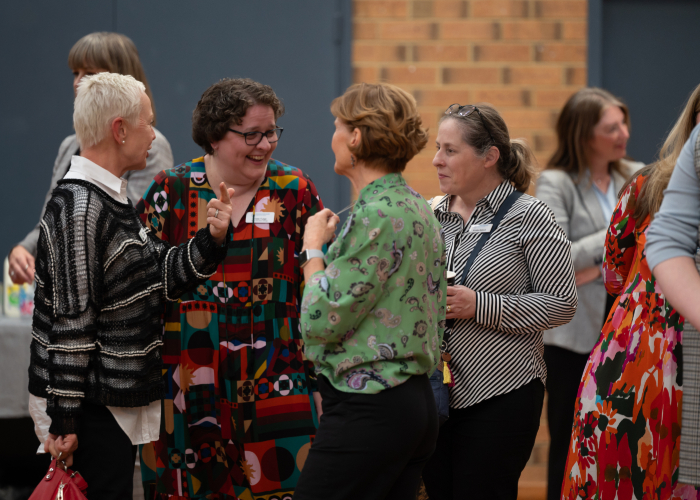
Guests included education officials, educators, musicians, and philanthropists. (Image: Naomi Jellicoe).
The research in South Australia underscores overwhelming support among teachers for the benefits of music learning. However, it also highlights widespread concerns regarding inadequate investment in teacher training, dedicated facilities, and necessary resources.
65% of respondents indicated that less than nine hours were allocated to music learning within their initial teaching degrees. Additionally, only about half (53%) said their school has appropriate musical equipment, with just 7% reporting having a purpose-built building to conduct music learning.
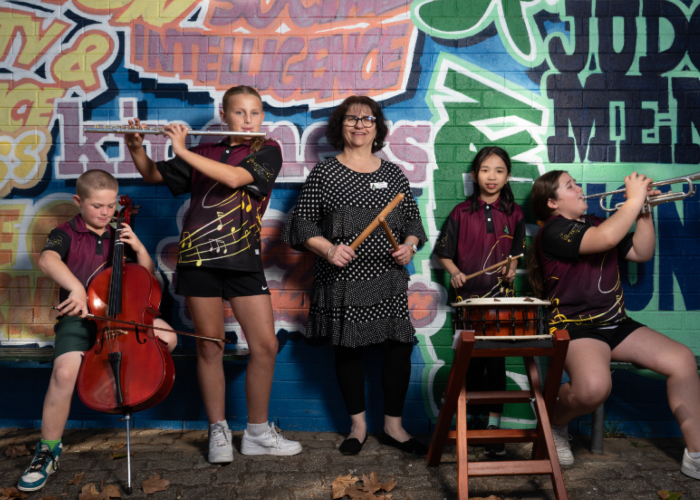
The Pines School’s Acting Principal, Toula Girgolas, with “school superstars” from the music program.
The data also reveals that over a third of teachers don’t get to teach music on a regular basis.
“That is a third of their students in South Australia who are not getting access to the benefits of music education,” emphasised Dr Anita Collins, senior advisor to Music Education: Right from the Start, via video link.
Dr Collins also notes the research underscores strong foundations in music delivery in South Australian schools, particularly support for teachers, in line with the priorities outlined in the SA Music Education Strategy. Yet despite this, “Achieving it relies on both the more equitable delivery of music education and giving every teacher the resources to deliver it,” said Anita.
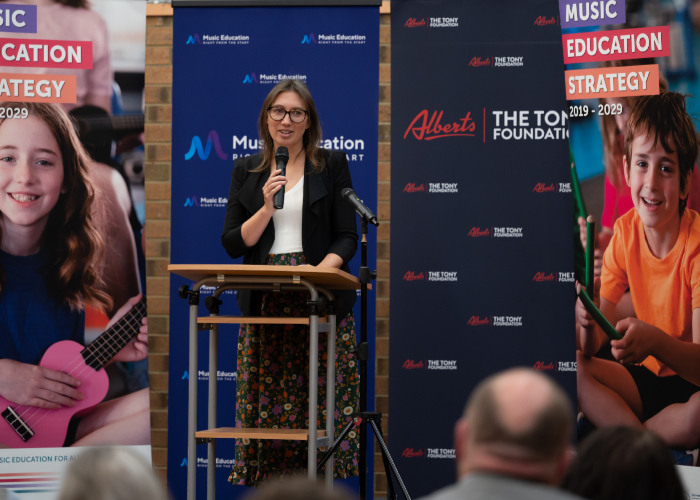
Emily Albert emphasised that quality music education requires fair access, supportive school leadership, resources, and confident and competent teachers (Image: Naomi Jellicoe).
The context
We know one of the greatest barriers to delivering a quality, sequential, ongoing music education for all primary school children is having confident and competent teachers who can deliver it. This research seeks to build our understanding of the realities within schools, complementing our previous examination of music in Initial Teacher Education degrees. Additionally, data serves as a valuable tool for monitoring progress and identifying areas for improvement.
In 2023, Music Education: Right from the Start, led by Alberts | The Tony Foundation, commissioned this SA pilot survey, designed and conducted by ACER, with the overarching goal to develop a national overview of music education in schools, addressing the lack of comprehensive data in this area.
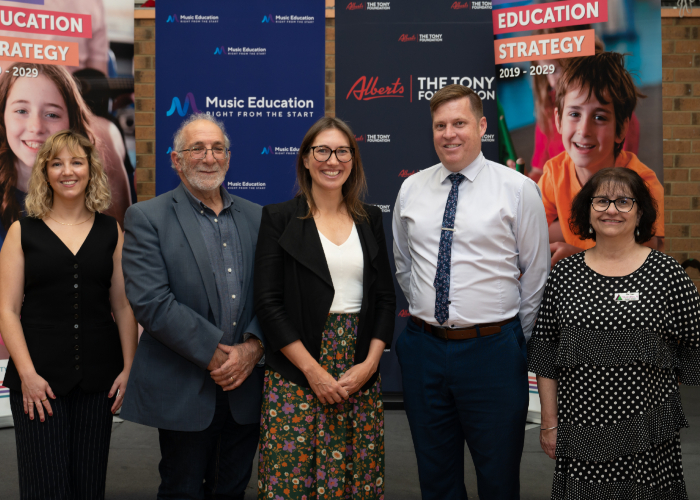
(From left): Music Education: Right from the Start’s Alicia Neil, Eric Sidoti and Emily Albert, with SA’s Music Education Strategy Manager, Nicholas Birch, and The Pines School’s Toula Girgolas. (Image: Naomi Jellicoe).
“It is no surprise that South Australia has taken the lead nationally in committing to this research very early in its development,” said Alberts executive director, Emily Albert.
“South Australia’s Music Education Strategy was born of a shared appreciation of the place and purpose of music education within a creative, challenging, fulfilling and scholarly education. Our children and young people deserve no less.”
The way forward
Minister Boyer announced that his Malinauskas Labor Government will allocate $7.5 million over the next three years to expand music education.
The extended investment will be directed towards acquiring additional musical instruments, providing extra training, upskilling non-specialist teachers to become music teachers, and improving accessibility to music through dedicated spaces within schools.
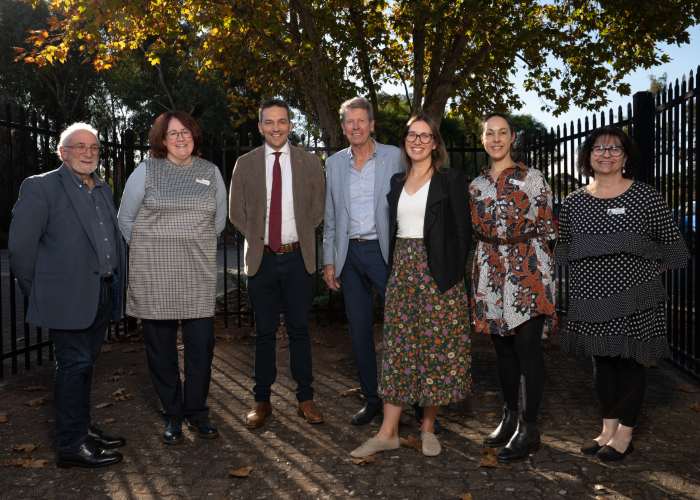
(From left): Eric Sidoti, Rachel Felgate, Minister Boyer, Geoff Day, Emily Albert, Sonia Kilmister and Toula Girgolas. (Image: Naomi Jellicoe).
“Starting quality music education early and continuing to deliver music learning opportunities provides benefits throughout a child’s school life and beyond,” said Minister Boyer, who also expressed gratitude for the support of philanthropic entities such as the Day Family Foundation, which supported our study.
The Pines School’s acting principal, Toula Girgolas, has witnessed the incredible benefits of music education since the introduction of a formal music program: “I have seen a marked improvement in the emotional and social well-being of our students, as well as an increase in their self-esteem,” she told the audience. “Some of them [who were previously disengaged] are now seen as school superstars!”
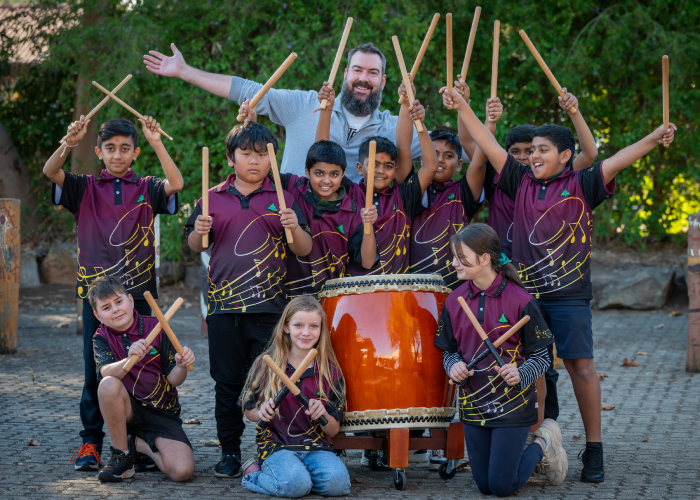
The Pines School’s music teacher, James Thornton, with his Taiko drumming students.
While our research strengthens the evidence connecting music learning with positive student outcomes, Dr. Anita Collins stresses the importance of ensuring equal access to resources and the good practices adopted by many schools, ensuring no student is left behind.
“I can’t wait to check back in and see the impact that the Music Education Strategy has made to the educational outcomes of the students in South Australia,” says Anita. “This data story is very exciting – but the next chapter will be where the real gold will be revealed.”
